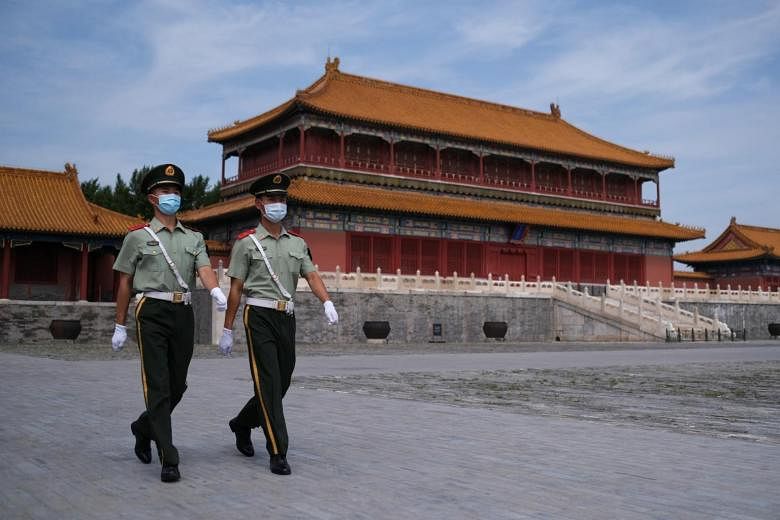WASHINGTON (REUTERS) - US Senate Democrats announced their own programme to counter China's global influence on Thursday (Sept 17), unveiling a sweeping US$350 million (S$474.78 million) package of legislation seeking to boost US competitiveness and recast diplomacy with Beijing.
The plan was backed by 11 Democrats, including Senate Democratic Leader Chuck Schumer, but its prospects were unclear because President Donald Trump's fellow Republicans control the Senate and determine which legislation it considers.
However, Senator Jim Risch, chairman of the Senate Foreign Relations Committee, said he hoped the Democrats' ideas could be combined with Republican proposals for a bipartisan plan.
"This is an American issue. This is not a partisan issue," Mr Risch told a committee hearing at which State Department officials testified about China's global influence, with one calling Beijing a "lawless bully."
Senator Bob Menendez, the committee's ranking Democrat and a leader of the Democratic effort, said he looked forward to working with Republicans "to forge a strong, unified and bipartisan approach" on the matter.
Relations with China have become an issue in campaigning for the Nov 3 elections, with Mr Trump running for re-election and control of Congress up for grabs.
Mr Trump and his fellow Republicans have sought to portray Democrats as weak on China, which Democrats dispute.
The "America LEADS Act of 2020" would, among other things, provide new resources to the US education system, and renew US diplomacy with China by strengthening the US commitment to international allies and international organisations like the World Health Organisation.
It also would strengthen trade enforcement measures and restore an emphasis on human rights, related to issues such as protests in Hong Kong and the treatment of Uighurs in Xinjiang.
Relations between China and the United States have nosedived in recent months, with disagreements over Taiwan, Hong Kong, trade, human rights and the coronavirus pandemic.

